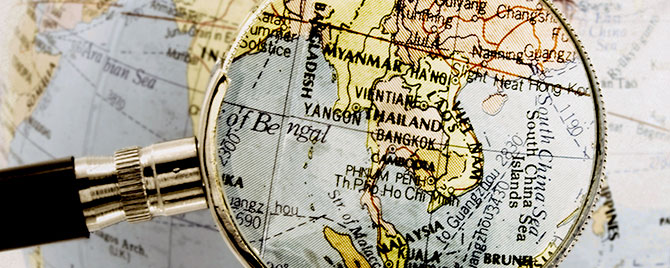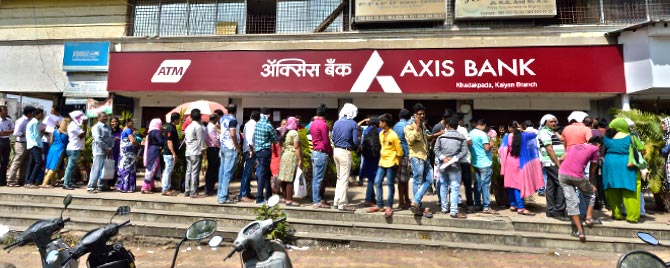Pacific Exchange
-

Can Asia Overcome Challenges and Remain Resilient?
Despite sizable capital outflows in recent years, emerging Asia’s strong external position and solid economic performance will help the region weather headwinds and remain financially resilient.
-

Dim Sum Bonds Take a Dive
The development of an offshore bond market, colorfully referred to as dim sum bonds, is an important pillar of China’s strategy to make the renminbi a global currency. However, like other aspects of renminbi internationalization, the growth of the offshore bond market has been halting and uneven.
-

Auditing the Auditors in Asia
Even the best financial regulation can be undone by faulty or inaccurate financial reporting. Accounting regulatory regimes, which include auditor oversight, are critical in ensuring that the plumbing of the financial system works and ultimately the stability of the economy.
-

Connecting China’s Stock Markets to the World
Over the past several years, several small but important channels have opened to allow capital to flow between China and global capital markets. The newest of these is the Shenzhen-Hong Kong Stock Connect program, which has the potential to serve as important financial gateway for both institutional and individual investors.
-

Korean Shipping Industry Sinks as Exports Lag
Korea’s Hanjin Shipping entered receivership in August 2016 after creditors refused it much-needed support. Hanjin is the most prominent casualty of the recent global shipping downturn. Yet, woes in the industry are not specific to Korea: three Japanese shippers have merged, and Taiwan announced a $1.9 billion bailout for its shipping industry since Hanjin’s episode. Korea and other export-oriented Asian economies will remain vulnerable to persistent shipping weakness as global trade and China’s slowdown persist.
-

India’s Demonetization: The Long Road to a Cashless Future
The chaotic aftermath of India’s recent demonetization shows how crucial cash remains to daily life in developing countries. The disruption also exposed the technological barriers to the transition to a less cash-dependent economy. As the Indian government announces further incentives for cashless payments, the demonetization shock may also jumpstart existing policy efforts to develop a more digital economy.
-

Chinese Banks are Writing Off More Loans and That is a Good Thing
In recent years, Chinese banks have become more aggressive in writing off their nonperforming loans as a way to address their asset quality issues. The acceleration in loan write-offs by Chinese banks was made possible by the relaxation of tax rules and is a step in the right direction for banking reform.
-

Why Asian Banks are Well Positioned for Basel III
A San Francisco Fed review indicates the Asia-Pacific’s 75 major banks are well positioned to meet Basel III minimum standards for implementation in 2019. The strong position of Asian banks can be attributed to the build-up of capital and liquidity buffers after the Asian Financial Crisis of 1997-8, as well as less reliance on leverage and hybrid capital instruments than their western counterparts. The end result is both higher levels and quality of capital.
-

Can Private Capital Transform Banking in China?
China’s banking system has historically been dominated by large government-owned banks. However, several recent trends are challenging that status quo. Private and privatized banks are beginning to play an important role in the financial system with the potential to improve financial inclusion and efficiency while raising new regulatory questions.
-

Can Fintech Fill Asia’s SME Lending Gap?
Perhaps no sector has more to gain from innovations in financial technology than small- and medium-sized enterprise (SME) finance, especially in Asia. SMEs accounted for 42 percent of Asia’s GDP in 2014 yet received only 18.7 percent of bank lending according to the Asian Development Bank. Fintech can particularly leverage the rapid growth of Asia’s e-commerce and regional trade, trends that complement SME development.